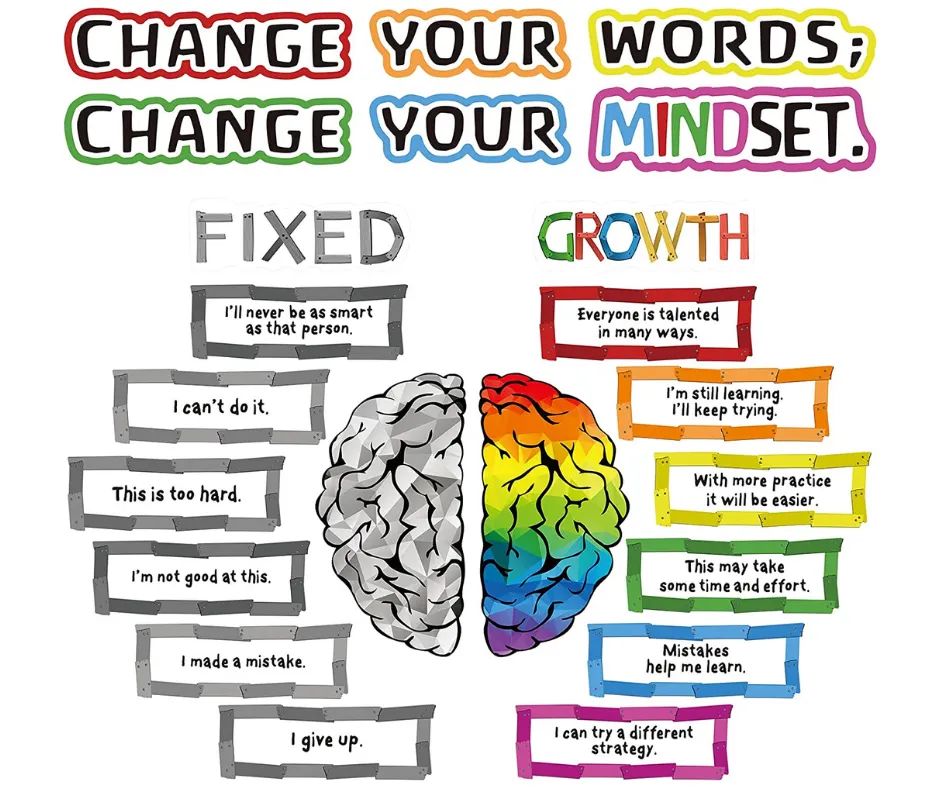Most of us would jump at the chance of living a longer, healthier, and more successful life. The problem is, the advice for getting there often feels overwhelming.
Run for 40 minutes a day. Eat a perfect diet. Meditate for an hour. These things are great, but they require a huge amount of time and willpower. It’s easy to feel like the bar for a longer life is just too high.
But what if the most powerful secret to longevity wasn’t in your gym or kitchen? What if it was in your mind?
Groundbreaking science shows that a simple mental shift, practiced for just five minutes a day, can help you live 12 years longer and be more successful.
It sounds too good to be true. But the evidence is stunning.
Contents
- 1 An 11-15% Longer Lifespan from Your Mindset
- 2 The Power of Your Social Life
- 3 The Success Multiplier: A Mindset to Help You Be More Successful
- 4 Your 5-Minute Toolkit for a Longer, Better Life
- 5 The Science: How Optimism Rewires Your Brain and Body
- 6 The Art of Smart Optimism: Thriving in the Real World
- 7 Your First 5 Minutes to a New Future
An 11-15% Longer Lifespan from Your Mindset

Researchers from Harvard and Boston University conducted two massive studies. They tracked nearly 70,000 women for a decade and over 1,400 men for 30 years. They wanted to know what separated those who lived long, healthy lives from those who didn’t.
The answer wasn’t just diet or exercise. It was optimism. The most optimistic men and women had an 11 to 15 percent longer lifespan on average.
To put that in perspective, with the average U.S. life expectancy hovering around 78 years, a 15% boost is nearly 12 years.
Optimists had 50-70% greater odds of achieving “exceptional longevity,” meaning living to age 85 or beyond. More recent studies found they were even more likely to live past 90.
The most shocking part? These results held true even after researchers accounted for things like income, education, chronic diseases, and depression. They even adjusted for health behaviors like smoking, diet, and alcohol use.
A positive mindset gives you a longevity boost above and beyond a healthy lifestyle.
The Power of Your Social Life

The same studies that highlighted optimism also pointed to another key factor: social integration. It turns out that your relationships are a longevity supercharger.
A massive review of 148 studies published in PLOS Medicine found that people with strong social ties had a 50% better chance of survival than those with weaker connections. This was true regardless of age, sex, or health status.
To understand how vital this is, consider these comparisons. A lack of social connection is as harmful to your health as smoking 15 cigarettes a day. It’s more dangerous than not exercising and twice as deadly as obesity.
This is where things get really interesting. Optimism and social connection aren’t two separate paths to a long life. They work together in a powerful, self-reinforcing loop.
When you expect good things from the future (the definition of optimism), you are more motivated to put in the effort to build and maintain friendships.
In turn, having a strong support system buffers you from stress and makes it easier to stay positive, even when things get tough. Cultivating optimism actively improves the most important external factor for a long life.
The Success Multiplier: A Mindset to Help You Be More Successful
The benefits of this mindset don’t stop at a longer life. The same mental habits that add years to your life also add achievement to your years.
Optimism is the spark that turns goals into action. People who expect a positive outcome are more likely to take that first step.
Pessimists, on the other hand, often see a journey as impossible before it even begins, so they never start. This is how you can learn to be more successful.
The Growth Mindset: Your Framework for Potential

The psychological engine behind this drive is what Stanford psychologist Carol Dweck calls a growth mindset. People generally fall into two camps:
- Fixed Mindset: You believe your intelligence, talents, and abilities are innate and unchangeable. You avoid challenges because you fear failure will expose your limits.
- Growth Mindset: You believe your abilities can be developed through effort, learning, and persistence. You embrace challenges as opportunities to grow and see failure as a stepping stone, not a final verdict.
A growth mindset is essentially a form of applied, realistic optimism. It’s the core belief that your future self can be better than your present self. This is the mindset of champions.
Think of Michael Jordan, who was famously cut from his high school basketball team. Someone with a fixed mindset might have given up. But Jordan used that failure as fuel. That growth mindset drove him to become one of the greatest athletes in history.
The habits that boost optimism are really exercises in strengthening this powerful mindset. This is the key to not only living longer but also to be more successful.
How Optimism Builds Real Wealth

This connection to success isn’t just theoretical. It shows up in your bank account. You might think optimists would save less money. After all, if you believe the future will be great, why worry about saving for a rainy day? But a major multi-study investigation found the exact opposite.
Published in the Journal of Personality and Social Psychology, the research revealed that people with higher levels of optimism consistently saved more money over time.
Their belief in a positive future didn’t make them complacent; it motivated them to take proactive steps to build that future.
Here is the most empowering part of the discovery: the link between optimism and saving was strongest for people with lower incomes. While privilege and higher socioeconomic status are often correlated with higher optimism, the impact of that optimism is most powerful for those facing financial hardship.
For someone living paycheck to paycheck, saving can feel pointless. But an optimistic outlook provides the crucial psychological fuel to keep going.
Also Read:
Your 5-Minute Toolkit for a Longer, Better Life
At this point, you might be thinking, “That’s great for optimistic people, but I’m just not wired that way.” That’s a common myth. Science shows that your mindset is surprisingly malleable.
Good News: You Can Learn Optimism
Research suggests that our baseline level of optimism is only about 25% determined by our genes. That means a massive 75% can be shaped, learned, and developed.
You don’t need to be born an optimist. You can become one with just a few minutes of practice each day. Here are three simple, science-backed exercises you can start today.
The Core Habit: The ‘Best Possible Self’ Exercise

This is one of the most effective tools for boosting optimism. A study in the Journal of Behavior Therapy and Experimental Psychiatry found that participants who did this for just five minutes a day over two weeks saw significant increases in their optimism.
How to do it (5-15 minutes):
- Find a quiet place and take a moment to imagine your life in the future. Imagine everything has gone as well as it possibly could.
- Think about the key areas of your life: your career, your relationships, your health, and your personal goals.
- For the next 5 to 15 minutes, write continuously about this best possible future. Be as detailed and specific as you can. Don’t worry about grammar or spelling. Just write.
This exercise works because it gives you clarity on what you truly want. It helps you restructure your priorities and gives you a powerful sense of control over your life.
Also Read: The Strange Case of the Teen Who Can Mentally Time Travel (Relive the Past and See the Future)
Powerful Alternatives for Your Toolkit
If future-gazing isn’t your thing, don’t worry. There are other proven methods that work just as well.
Alternative 1: The Gratitude Journal (5 minutes)
This exercise grounds you in the positives of your present and past. The key is not just to list things, but to understand why they happened.
How to do it: Each evening, write down three things that went well that day. For each one, answer the question: “Why did this happen?”. This simple addition helps your brain process the positive event more deeply. Research shows this practice boosts happiness and optimism, reduces anxiety, and even improves sleep and lowers inflammation.
Alternative 2: Value-Based Affirmations (2 minutes)
This is the quickest way to shift your mindset. The science is fascinating: self-affirmation activates the reward and self-processing centers of your brain, helping to physically rewire your thought patterns through neuroplasticity.
How to do it: Instead of generic phrases like “I am successful,” focus on your core values. This makes the affirmation more believable and powerful. For example, say to yourself: “I am a person who values persistence, and I will apply that to today’s challenges”.
Habit
How-To
Time
Best For…
Key Scientific Benefit
Best Possible Self
Write in detail about your ideal future in key life areas.
5-15 min
Goal-setters & future-planners.
Increases optimism & goal clarity.
Gratitude Journal
List three good things from your day and explain why they happened.
5 min
Those who prefer reflecting on the present.
Boosts happiness & reduces stress.
Value-Based Affirmations
State affirmations tied to your core values, not just outcomes.
2 min
Quick mindset shifts & confidence boosts.
Reinforces self-worth & buffers threats.
The Science: How Optimism Rewires Your Brain and Body
These simple habits create profound changes deep within your biology. They give your body a biological upgrade and your brain a neurological rewiring.
Also See: These 10 Books Will Teach You What No MBA Degree or University Ever Could
Your Body’s Biological Upgrade
Practicing optimism is like making a consistent deposit into a “biological investment account.” The returns compound over time.
- Slows Cellular Aging: At the end of your chromosomes are protective caps called telomeres. Shorter telomeres are a key marker of aging. Research shows that pessimism is strongly linked to faster telomere shortening, while optimism is associated with keeping them longer. This means optimism may literally slow down the aging process at a cellular level.
- Boosts Your Immune System: Studies have found that when people feel more optimistic, their immune systems mount a stronger response to challenges.
- Calms the Stress Response: Pessimism can lead to chronically elevated levels of stress hormones like cortisol. This drives body-wide inflammation, a major factor in heart disease and other age-related illnesses. Optimism helps regulate this stress response, protecting your body from this constant wear and tear.
Your Brain’s Neurological Rewiring

Your brain has an amazing ability called neuroplasticity. It can physically change and form new connections based on your thoughts and experiences. A growth mindset is a state that actively rewires your brain.
When you embrace a challenge or learn from a mistake, you forge new, stronger neural pathways. These 5-minute exercises are a form of active training. They are like installing a “software update” for your brain’s operating system.
Over time, the reinforced pathways make optimism and resilience your brain’s new default setting. You don’t have to try to be optimistic; it becomes your more natural, automatic response. This is how you can be more successful in all areas of your life.
The Art of Smart Optimism: Thriving in the Real World
To harness the power of this mindset, it’s important to practice it correctly. But this isn’t about ignoring reality or pretending problems don’t exist.
Life is full of real challenges. Pretending they aren’t there is not optimism; it’s toxic positivity. This is the harmful belief that you should maintain a “good vibes only” attitude no matter what. It invalidates real, human emotions like sadness, anger, and fear.
When you tell someone (or yourself) to “just be positive” in the face of real pain, it can lead to shame and guilt. It prevents you from processing difficult emotions that are necessary for growth.
The goal is realistic optimism. This is the ability to acknowledge the difficulty of a situation while still believing in your capacity to work through it and create a better future. It’s the core of a growth mindset. It’s knowing that things are tough right now, but you have what it takes to learn, adapt, and overcome.
Your First 5 Minutes to a New Future
The science is clear. A simple, 5-minute daily habit is one of the most powerful investments you can make in your future. It is a scientifically-backed strategy to not only help you live 12 years longer, but also to enhance your well-being and achieve greater success.
The path to a longer, healthier, and more successful life doesn’t have to be complicated. It can start with just five minutes. Choose one of the exercises from the toolkit.
Commit to trying it for the next two weeks. That small investment of time may be the most important five minutes of your day. Your future self will thank you for it.
